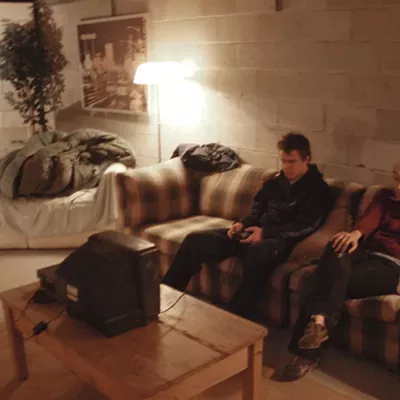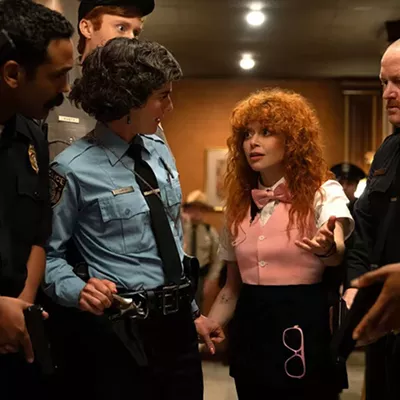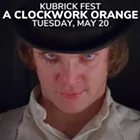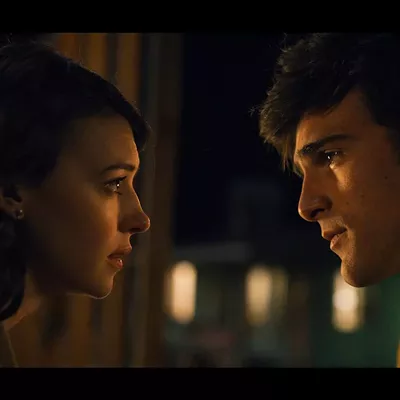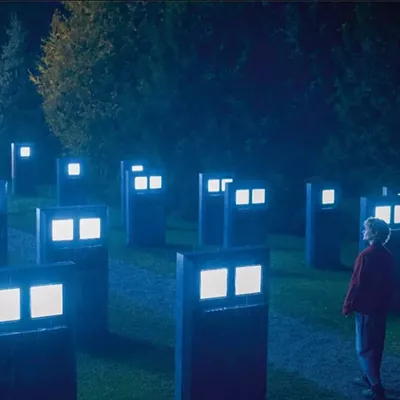When Adam McKay made The Big Short in 2015, he used his comedy background to bring some energetic humor to an important subject (the 2008 financial crisis) that many people found both boring and difficult to follow. It was a tough balancing act that the movie didn't always pull off, but when it worked, it brought an exciting new perspective to the ripped-from-the-headlines feature film. McKay attempts that same balancing act again with Vice, his satirical biopic of former Vice President Dick Cheney, but the results are less effective this time around.
For starters, the characters in The Big Short were sort of lovable scoundrels, even if their activities were doomed to plunge the country into financial ruin. Vice's Cheney, as played by Christian Bale in his latest irritatingly showy transformational performance, is just an unpleasant sourpuss, someone who seems to take no pleasure in anything he does, whether nefarious or otherwise. McKay doesn't have to sympathize with Cheney in order to make an interesting movie about him, but Vice has virtually no insights about its title character, and after spending two hours with him, the audience is no closer to understanding his motives or desires.
McKay starts the movie with Cheney as a directionless young man in his home state of Wyoming, working manual labor jobs and getting in bar fights, after having dropped out of college. Why is young Dick so angry? There are brief moments featuring his volatile father, but otherwise the movie never bothers exploring his emotions, and as soon as his girlfriend Lynne (Amy Adams) gives him an ultimatum about shaping up if he wants to marry her, he turns his life around seemingly overnight.
Soon he's a political operative working in the Richard Nixon administration, alongside up-and-coming Rep. Donald Rumsfeld (Steve Carell). He joins the Republican Party apparently on a whim, and simply follows Rumsfeld's lead on whatever policies ought to be implemented. McKay often just relies on a slightly goofy tone for what passes as comedy in these early scenes, and Carell brings an amoral glee to Rumsfeld that doesn't necessarily resemble the real person's public image, but can be a lot of fun to watch.
McKay fast forwards through most of the middle of Cheney's political career, including his time as a congressman and working in the first George Bush administration. The movie picks back up with the older Cheney (Bale now distractingly overweight and bald), out of the political spotlight for a number of years, recruited by George W. Bush (a well-cast Sam Rockwell) to become Bush's running mate. It's here that McKay really turns up his political ire, even as he remains at a distance from Cheney as a person. There's even a scene between Cheney and Lynne, when Cheney is deciding whether to join the Bush ticket, in which McKay explicitly tells the audience that it's impossible to know what transpired in Cheney's private interactions.
Why did Cheney execute such a forceful power grab as Bush's VP and push so strongly for war in Iraq? The movie doesn't have answers so much as it has smug, half-hearted jokes, including a ridiculous, heavy-handed twist regarding the apparent everyday nobody (Jesse Plemons) who's been narrating the movie. The final stretch is a barrage of recriminations and accusations that might as well have been lifted from a Michael Moore documentary. McKay's strength in The Big Short was that he was a better storyteller and a better comedian than Moore, better at drawing in an audience with engaging characters and clever jokes. With the limp, unfocused Vice, he's lost whatever edge he had.♦




